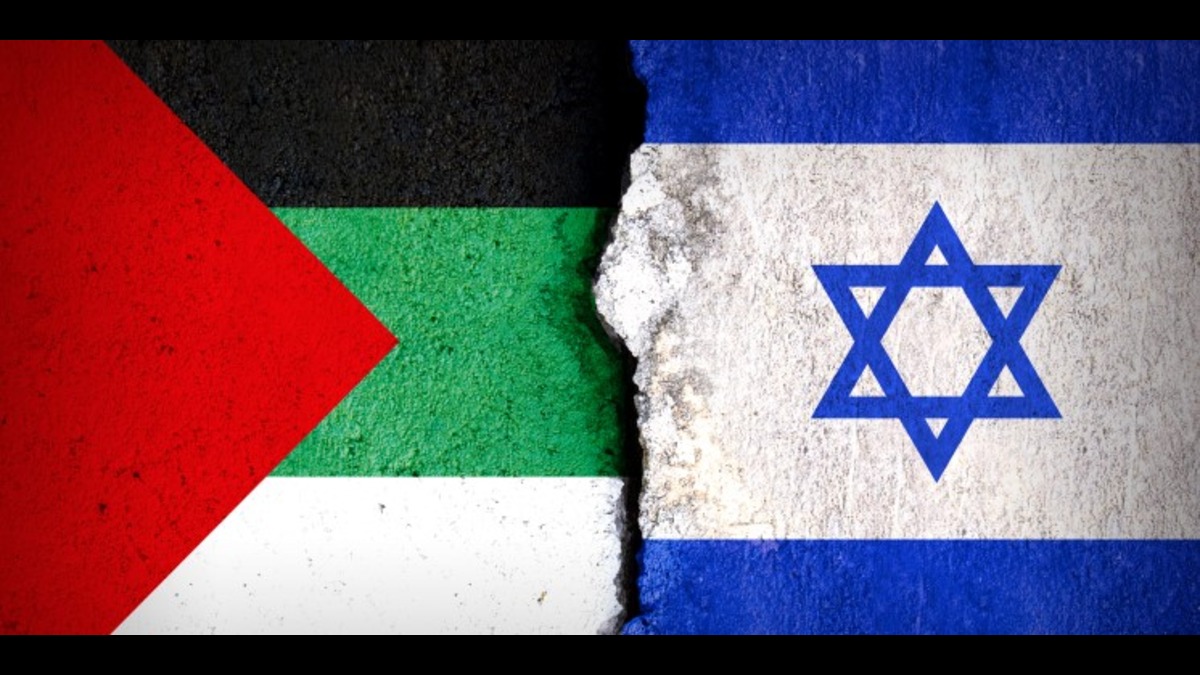Burning Borders: The Influence of the Israeli-Palestinian Conflict in Nigeria

The Israel-Palestine issue is one of the most enduring and symbolic in a globe rife with conflicts and geopolitical tensions. This decades-long conflict, steeped in historical, religious, and geographical issues, has ramifications far beyond the Middle East. While the conflict’s epicenter is hundreds of kilometers from Nigeria’s shores, its ramifications have seeped into the country’s daily lives, politics, and policy. The influence of the Israel-Palestine issue is an unexpected guest in the heart of Africa, a continent that has long battled its complexity and dilemmas. However, a visitor has infiltrated Nigerian society, politics, and diplomacy, altering relationships, igniting discussions, and raising questions about the interdependence of global issues.
This article investigates the complex effects of the Israel-Palestine conflict on Nigeria, examining how this distant problem has managed to reverberate within the country’s borders. The influence of this age-old feud reaches Nigerian homes, religious communities, and government halls, from religious ties and ideological alignments to geopolitical repercussions and foreign policy decisions. By investigating these complexities, we hope to shed light on a lesser-discussed facet of the Israel-Palestine conflict’s worldwide reach and its significant impact on Nigeria’s emerging narrative.
Social Impact
The history and religion of Israel, Palestine, and Nigeria are inextricably linked. Nigeria has a sizable Christian population, notably in the country’s southern areas. The Christian faith has historical origins in Judaism, which has resulted in a sense of religious solidarity between Nigerian Christians and the state of Israel. Many Nigerian Christians regard the Holy Land as the spiritual cradle of their faith. This bond is frequently shown through pilgrimages to Israel, religious festivities inspired by Jewish traditions, and support for the Israeli cause in the current conflict. As a result, the Israel-Palestine issue has become a significant source of concern for a substantial percentage of Nigeria’s people.
Conversely, Nigeria has a substantial Muslim community, especially in the northern regions. The Palestine question resonates with many Nigerian Muslims due to the significant presence of Islamic holy sites in Jerusalem, such as the Al-Aqsa Mosque. This sacred connection with Palestine fuels sympathy and solidarity for the Palestinian cause, particularly among Nigerian Muslims. This could lead to the two different sides identifying with either side of the conflict and could cause social divisions within Nigeria.
Diplomatic Relations
Beyond religious and historical linkages, the Israel-Palestine conflict has significant geopolitical ramifications for Nigeria. Nigeria, Africa’s most populous country, holds considerable power. This clout extends to the diplomatic and political spheres, and Nigeria’s position on international matters, especially the Middle East crisis, carries weight. The Israeli-Palestinian conflict has the potential to have an impact on Nigeria’s relations with other countries, particularly the United States. The United States is an essential ally of Israel, and Nigerian foreign policy actions may impact its relationship with the United States. This dynamic puts Nigeria in the problematic position of reconciling its national interests with moral and ethical concerns about the conflict. Taking the side of Palestine could lead to consequences for the country.
And this extends to economic considerations as well. Various countries and international organizations provide foreign aid and investment to Nigeria. Nigeria’s attitude toward the Middle East may impact its economic relationships since some countries use their financial clout to reward or punish nations based on their opinions on the Israel-Palestine conflict. Furthermore, Nigeria’s oil-rich economy has elevated it to the forefront of the global energy scene. Oil geopolitics frequently overlap with international competitions, and Nigeria’s energy sector is susceptible to broader regional instability, especially in the Middle East.
Domestic Implications
The complex ethno-religious terrain of Nigeria frequently overlaps with global issues, such as the Israel-Palestine conflict. Political leaders and influential figures may use the sentiments of their own religious or ethnic communities to advance their agendas. This can potentially politicize the dispute within Nigeria, thereby generating tensions between different religious groups. The Israel-Palestine conflict has sometimes been utilized as a wedge issue, with politicians and religious leaders taking views that appeal to their supporters. This has broader consequences for peace and social cohesion in Nigeria, a country already beleaguered by internal differences and wars.
Terrorism and Security Concerns
Nigeria has suffered internal security issues, notably the Boko Haram insurgency. The Israel-Palestine conflict can impact the country’s security dynamics by fostering religious extremism or providing a pretext for radicalization. Furthermore, Nigeria’s security partnerships with foreign countries are frequently entangled with more extensive international counterterrorism operations.
To conclude, the impact of the Israel-Palestine conflict on Nigeria is a complicated web of historical, theological, geopolitical, internal, and international factors. While Nigeria may appear to be a world away from the Middle East, the conflict’s consequences are felt in the country’s daily life, policies, and relationships. It emphasizes the interconnection of global concerns and the unavoidable influence faraway wars can have on even the most remote nations.
Nigeria must negotiate its reactions to the Israel-Palestine crisis with sensitivity, moderation, and a steadfast commitment to its ideals, national interests, and the well-being of its varied population as it grapples with its difficulties and aspirations. Nigeria’s fate remains entangled with the enduring complexity of the Middle East in the broad tapestry of world politics.
– Moboluwarin Ogunleye




